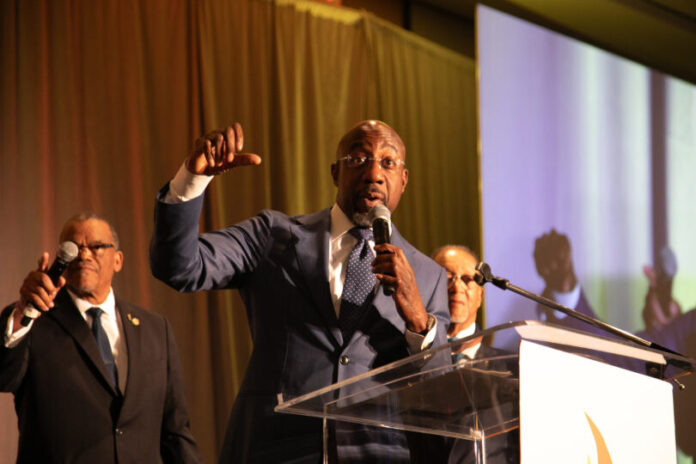
By Stacy M. Brown, NNPA Newswire Senior National Correspondent
This year’s Congressional Black Caucus Foundation’s (CBCF) Annual Legislative Conference (ALC) has served as a rallying cry for dismantling the systemic barriers that have long obstructed Black economic advancement. Centered around the theme “From Vision to Victory: Amplifying Black Voices,” the event brought together lawmakers, activists, and leaders to confront the policies that have perpetuated the racial wealth gap—a gap that has cost the U.S. over $16 trillion in GDP over the last two decades.
Maryland Governor Wes Moore set the tone with a powerful address, outlining the historical injustices that led to this entrenched inequality. “If you don’t understand the Homestead Act, redlining, and how government dollars were deliberately withheld from Black communities, you won’t understand why this wealth gap exists,” Moore declared. He laid bare the reality that the racial wealth gap was not an accident but the result of policies that actively discriminated against Black Americans.
Moore’s message was not just a history lesson but a call to action. “Racism is expensive. Bigotry is expensive. This country has lost $16 trillion in GDP because of the racial wealth gap,” he warned. Moore emphasized the need for bold, comprehensive policies that address the root causes of the gap, from housing to wages to education, urging policymakers to create an economic system where the racial wealth gap becomes history.
The urgency to close the wealth gap permeated the conference’s discussions. Congressional Black Caucus Chair Rep. Steven Horsford (D-NV) highlighted the immense economic power of Black culture and stressed the importance of transitioning from consumers to owners. “Black people drive the economy because we drive culture,” Horsford asserted. “It’s time for Black America to take ownership of what we help build, to profit from our cultural and economic contributions.”
Rep. Troy Carter (D-LA), co-chair of the ALC, spoke forcefully about the need to tear down the systems that continue to limit Black Americans’ access to capital, education, and housing. “We must fight for policies that open doors to capital for Black entrepreneurs, invest in workforce development, and eliminate discriminatory practices in lending and hiring,” Carter stated, highlighting how these systemic barriers have long kept Black communities from achieving economic equality.
Rep. Lucy McBath (D-GA), another ALC co-chair, delivered a poignant reminder of the power within the Black community to overcome these obstacles. “We have the resources, the intellect, and the political power to win this fight,” she said. “But we must act. The power lies in our hands.”
The ALC brought together a diverse array of voices, including NAACP President Derrick Johnson, PolicyLink CEO Dr. Michael McAfee, and Planned Parenthood Action Fund President Alexis McGill Johnson. Each speaker emphasized that the fight for racial justice is inseparable from the struggle for economic equity, urging attendees to take decisive action.
The conference didn’t just highlight the problem; it offered solutions, pushing for policies that would reshape the economic future for Black Americans. Moore’s vibrant reminder of the cost of inaction—$16 trillion lost over two decades—resonated throughout the event.
Throughout the week, Moore’s words hung in the air: “Our time in these seats is temporary. We don’t have a minute to waste. We can’t afford to wait any longer.”

